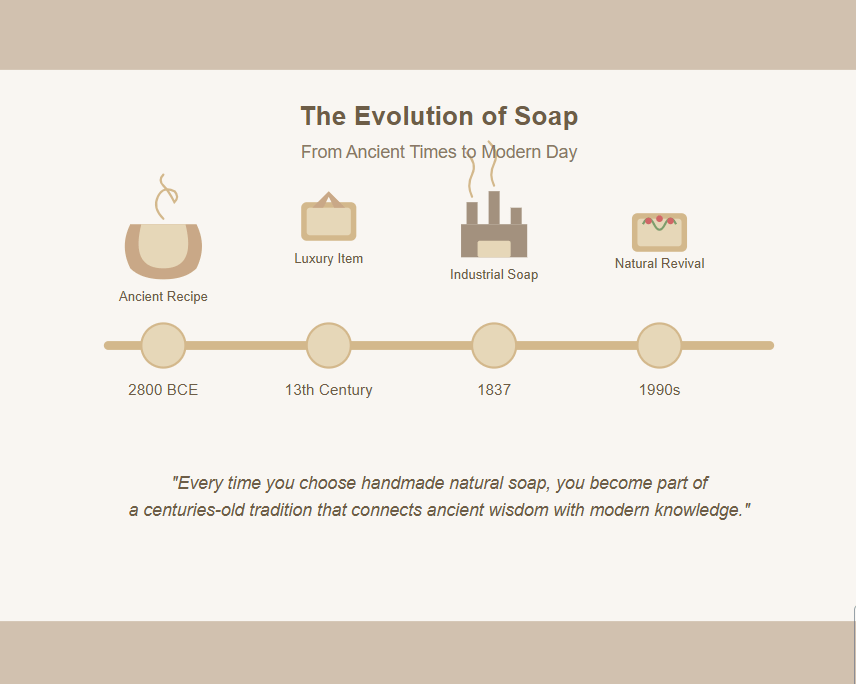
The History of Soap: A Thousand-Year Journey in Cleanliness, Health, and Status
Share
Discover the amazing history of soap – from Mesopotamia to modern natural soap. Fascinating facts, important dates and historical stories you didn’t know. A complete overview that will make you look at every shower differently.
The amazing history of soap
When we hold a bar of fragrant soap in our hands, we rarely think about the fact that we are using one of humanity's oldest inventions. And soap's journey through the centuries is a real adventure!
The First Soap Makers — The Sumerians and Grandma's Ancient Recipes
Picture this: 2800 BC, ancient Sumer. On clay tablets, archaeologists discovered the first recipes for soap—a mixture of water, alkali wood ash, and oils. It wasn’t yet the soap we know, but more like a thick paste for washing clothes.
But the ancient Egyptians had already added vegetable oils and alkaline salts to this mixture, creating a body care product. The aristocrats of ancient Egypt used soap based on beeswax, olive oil, and plant extracts — doesn't this remind us of modern natural cosmetics?
Facts about soap that will surprise you
🧼 The soap chronometer:
- 2800 BC — First mentions of soap (salmon)
- 600 BC — Phoenicians make solid soap from goat fat and ash
- 200 AD — Roman physician Galen writes about the medicinal properties of soap
- 9th century — The first soap-making guilds appear in Europe
- 13th century — Soap becomes a luxury product and is taxed
- 1791 — Frenchman Nicolas Leblanc invents a process for producing soda from salt
- 1837 — The advent of industrial soap from Procter & Gamble
- 1960s — Synthetic detergents replace natural soap
- 1990s — Renewed interest in natural soap making
Soap as a status indicator
In the Middle Ages, soap was so expensive that only aristocrats could afford it. King Louis XIV of France, for example, only bathed with soap a few times in his life! And in 16th century England, soap was such a precious commodity that it was given as a gift at New Year's and Christmas.
From "chemistry" to nature and back
The Industrial Revolution brought cheap soap to every home, but its quality left room for improvement. By the mid-20th century, synthetic detergents had all but replaced traditional soap.
But today the pendulum is swinging in the opposite direction. We are returning to what our ancestors started with—natural ingredients and traditional production methods. This is not just a fashion statement, but a conscious choice for the benefit of health and the environment.
Every time you choose natural, handmade soap, you become part of a long-standing tradition that combines ancient wisdom with modern knowledge about skin health.
And what kind of soap do you use? Industrial or natural?







